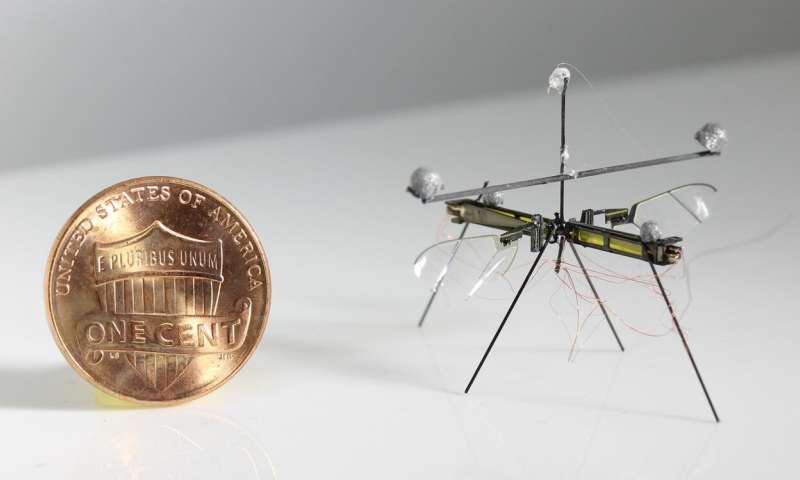Best of Last Week: RoboFly, a nighttime photovoltaic cell, and how roses improve learning during sleep

It was a good week for space research as a team at the California Institute of Technology found evidence to support a theory that suggests Mars' thin carbon dioxide atmosphere is due to a long-term stable polar deposit of CO2 ice that controls global atmospheric pressure. Also, an international team of astrophysicists showed new evidence for "frame-dragging," in which the spin of a celestial body twists space-time. The researchers tracked the orbit of an exotic stellar pair for almost two decades. And a team at Washington University in St. Louis found evidence of presolar grains in a meteorite not expected to harbor them.
In technology news, a team at the University of Washington demonstrated an insect-sized robot that can fly, walk and drift on water surfaces—called RoboFly, it weighs just 74 milligrams. And a combined team of researchers from MIT and the National Renewable Energy Laboratory found that thinner really is better for cheaper solar cells. Also, a team at UC Davis proposed a photovoltaic cell that works at night—they claimed their idea could result in photovoltaic cells that generate up to 50 watts of power per square meter under ideal conditions at night by collecting reverse heat radiation. And a team with members from the Chinese Academy of Sciences and Beijing and Tsinghua University have investigated the possibility of real-time, on-demand hydrogen generation for use in fuel cells.
In other news, a combined team of researchers from the Loma Linda University School of Public Health and the Biomedical Research Institute August Pi i Sunyer found evidence that walnuts may slow cognitive decline in at-risk elderly people. And a team of archaeologists at the University of California, Berkeley, debunked the myth of Cahokia's Native American lost civilization. They found evidence suggesting the exodus was short-lived.
And finally, if you are among the millions who wish you could improve your learning capabilities, you might want to check out a study conducted by a trio of researchers from the Institute for Frontier Areas of Psychology and Mental Health and the University of Freiburg—they found that the scent of roses improves learning during sleep.
© 2020 Science X Network